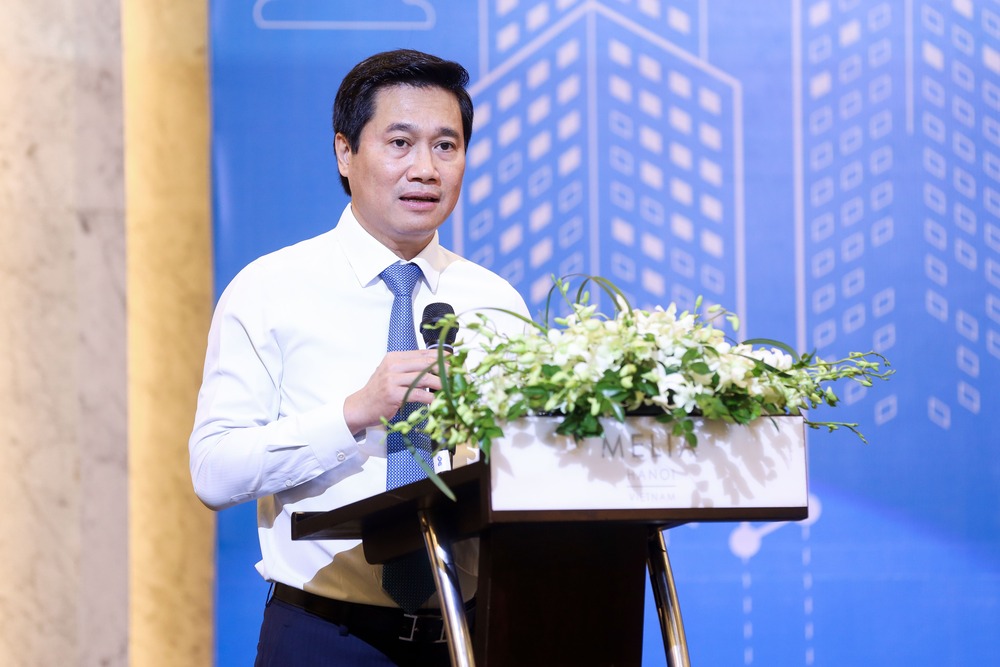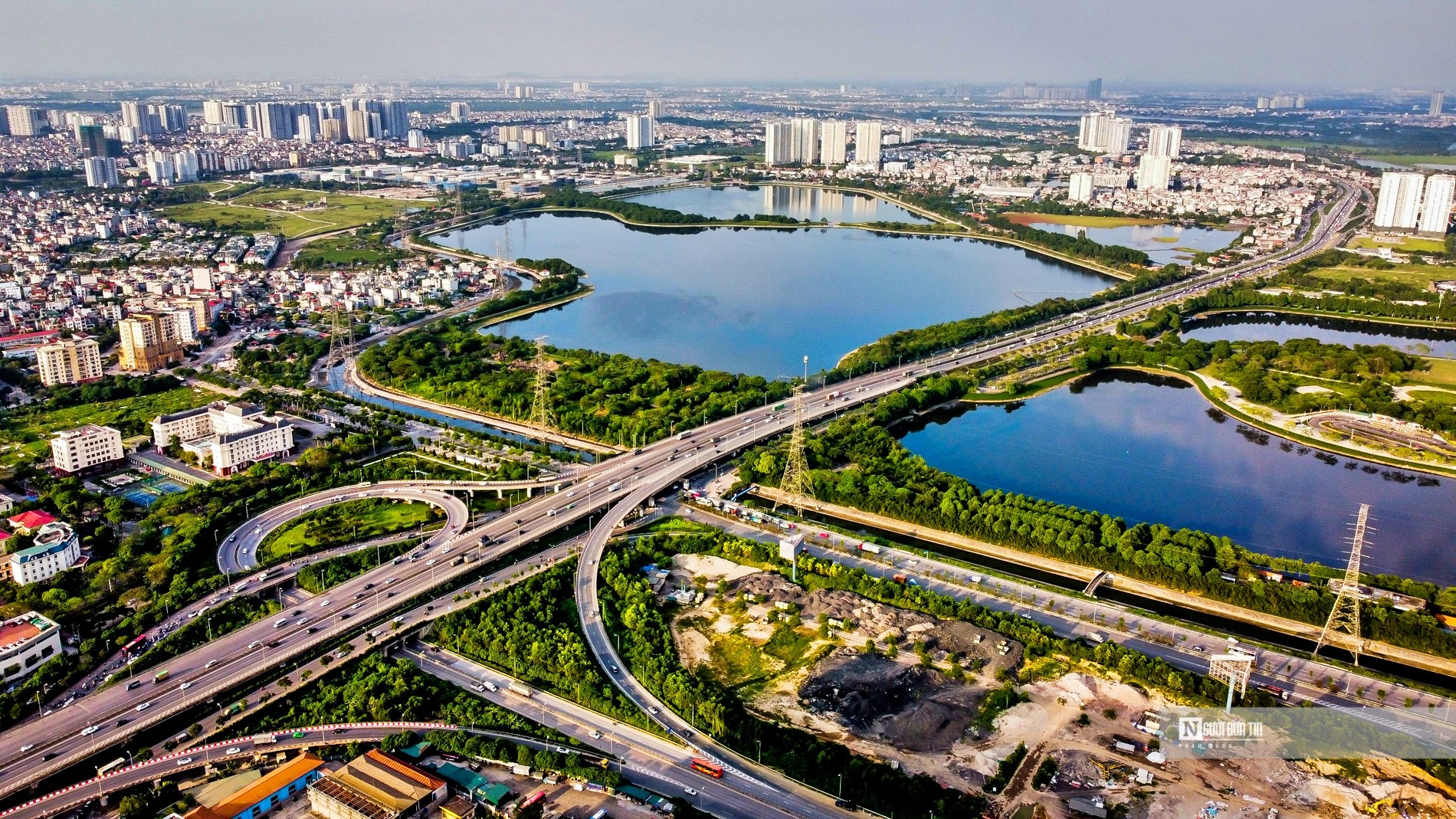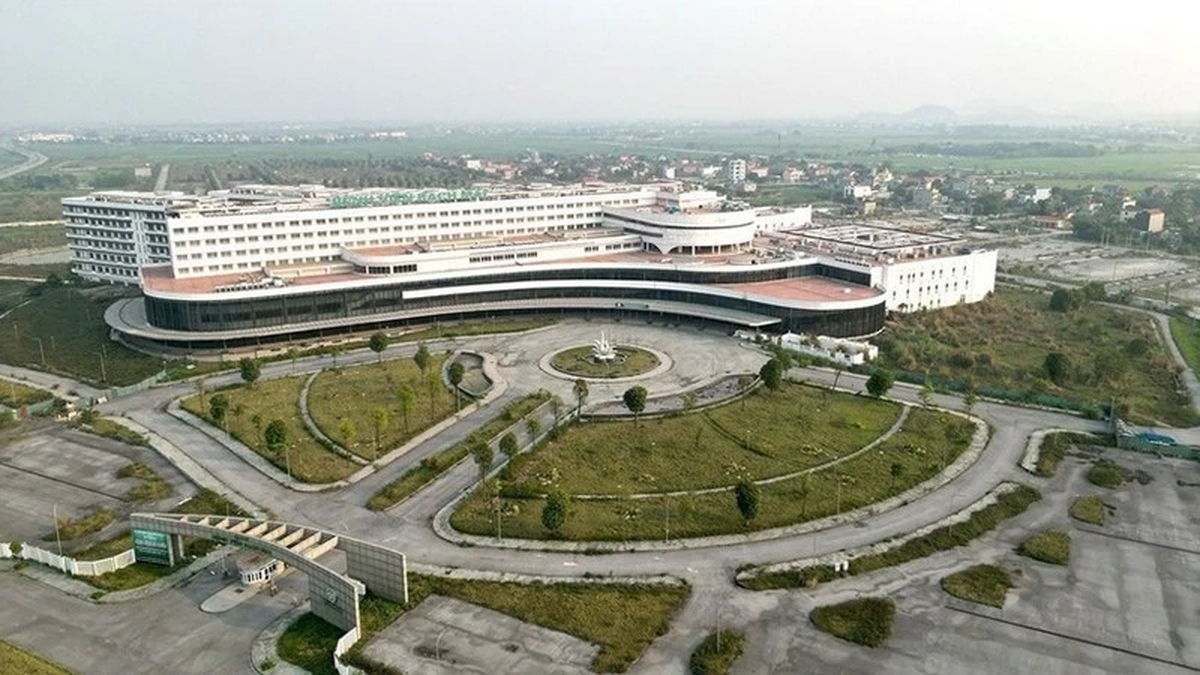Real estate still has strong development potential
At the international conference "Potential for real estate market development in Vietnam" on the morning of July 13, Deputy Minister of Construction Nguyen Tuong Van stated that the real estate sector plays an important role in the socio-economic development of countries.
On average, the contribution of the construction and real estate industry to GDP in recent years accounts for about 11% of total budget revenue (of which the real estate industry directly accounts for about 4.5%).
Foreign investment in the real estate sector has been constantly increasing and making an important contribution to the development of the market. To date, FDI capital in the real estate sector has reached 66.4 billion USD, accounting for 15.1% of total FDI capital in Vietnam.
Real estate is the second sector in attracting FDI, after the manufacturing industry. However, in recent years, the real estate market has encountered many difficulties, challenges and problems that need to be solved.
“The Ministry of Construction is committed to accompanying domestic and international businesses and investors in promoting sustainable development of the real estate market in Vietnam,” Deputy Minister Van emphasized.

Deputy Minister of Construction Nguyen Tuong Van spoke at the workshop.
Sharing about the opportunities and potential for the development of the real estate market in Vietnam and the new points in the draft Law on Housing (amended) and the draft Law on Real Estate Business (amended), Mr. Hoang Hai - Director of the Department of Housing and Real Estate Market Management (Ministry of Construction) assessed that despite the difficulties of the real estate market in recent times, the development trend is inevitable and there is still much potential. According to Mr. Hai, the above comments were made for 7 specific reasons.
Firstly, due to the rapid urbanization rate in Vietnam. Vietnam's urbanization rate continued to increase in the period 2010-2020, from 30.5% in 2010 to nearly 40% in 2020; the urbanization rate growth rate in the period 2010-2020 was 2.75%/year. The number of urban areas nationwide by 2025 is about 950 - 1,000 urban areas, by 2030 about 1,000 - 1,200 urban areas.
“With the high rate of urbanization, the urban population is increasing, large cities attract a workforce that promotes the demand for social housing with suitable prices to continue to increase. The increase in scale along with the rapid increase in the young population structure in urban areas will continue to promote the demand for housing suitable for young urban families in the medium term to continue to increase,” said Mr. Hai.
Second, regarding population, the urban population growth rate in the 2010-2020 period, calculated from data from the General Statistics Office, is 3.1% per year, higher than the average growth rate of 2.5% in Southeast Asian countries.
Meanwhile, the growth rate of urbanization rate in the same period according to the calculation of the General Statistics Office is 1.9%/year. This implies that the urban population rate will double after 38 years.

Mr. Hoang Hai - Director of the Department of Housing and Real Estate Market Management (Ministry of Construction).
Third, supply is still far below demand. According to the national housing development strategy for the 2021-2030 period, with a vision to 2045, the average housing floor area per capita will reach about 27 square meters in 2025 and about 30 square meters in 2030, but currently it is only about 25.6 square meters.
Fourth, Vietnam is currently the destination of large manufacturing corporations. As a result, the demand for housing for workers in industrial parks and export processing zones is increasing.
Fifth, the number of international visitors to Vietnam increased sharply compared to last year, along with long holidays in the first 6 months of the year, which had a positive impact on the occupancy rate and rental prices of hotels and resorts. The occupancy rate and rental prices of apartments for rent and commercial center premises were basically stable.
Sixth, the leader of the Ministry of Construction said that the Government's macroeconomic management is showing effectiveness. This is a space to create confidence for investors, creating more motivation for all economic development activities, especially for the real estate market.
And finally, the project "Investing in building at least 1 million social housing units for low-income earners and industrial park workers in the period 2021-2030" is also contributing to promoting the real estate market to balance the supply structure.
Amending the law demonstrates the State's responsibility
Assessing the impact of amending the two laws on Housing and Real Estate Business on market prospects, Mr. Hai said that amending the law helps clearly demonstrate the role and responsibility of the State towards the real estate market.
Regarding the Housing Law, this law will create economic impacts in creating a legal basis for entities to fully exercise their rights and obligations regarding housing assets and encourage foreign investment attraction.
Besides, it contributes to promoting housing development to ensure supply-demand balance, diversify supply sources, avoid the situation of hot and abnormal market development, causing economic inflation.

According to the Ministry of Construction, the real estate market still has potential for development (Photo: Pham Tung).
The housing finance system is being improved towards stability and long-term, reducing dependence on the state budget, while ensuring capital for housing development, especially housing for policy beneficiaries. Increasing housing supply, reducing housing prices, creating more opportunities for the majority of people to access suitable housing, contributing to stabilizing social security.
Regulations on the rights and obligations of foreign organizations and individuals are legalized in a clear and specific manner, creating peace of mind about living and working conditions in Vietnam, contributing to attracting foreign investment, in accordance with international practices without affecting housing policies for social subjects.
Regarding the Law on Real Estate Business, it helps the real estate market continue to develop stably and healthily, thereby increasing the state budget revenue, reinvesting in society such as expanding schools, building parks, developing housing for low-income people, industrial park workers, etc. will have more resources to implement better. Contributing to socio-economic development, stabilizing the macro economy and ensuring social security.
Thereby, creating a more complete, clear, public and transparent legal corridor for real estate business activities, controlling the real estate market as well as checking compliance with legal regulations of organizations and individuals when participating in real estate business.
In addition, intermediary organizations related to the real estate market such as credit institutions, notary offices, law firms, and businesses in the industry will benefit from the development of the real estate market, which will lead to other socio-economic needs .
Source






















![[Photo] National Assembly Chairman Tran Thanh Man visits Vietnamese Heroic Mother Ta Thi Tran](https://vphoto.vietnam.vn/thumb/1200x675/vietnam/resource/IMAGE/2025/7/20/765c0bd057dd44ad83ab89fe0255b783)















































































Comment (0)